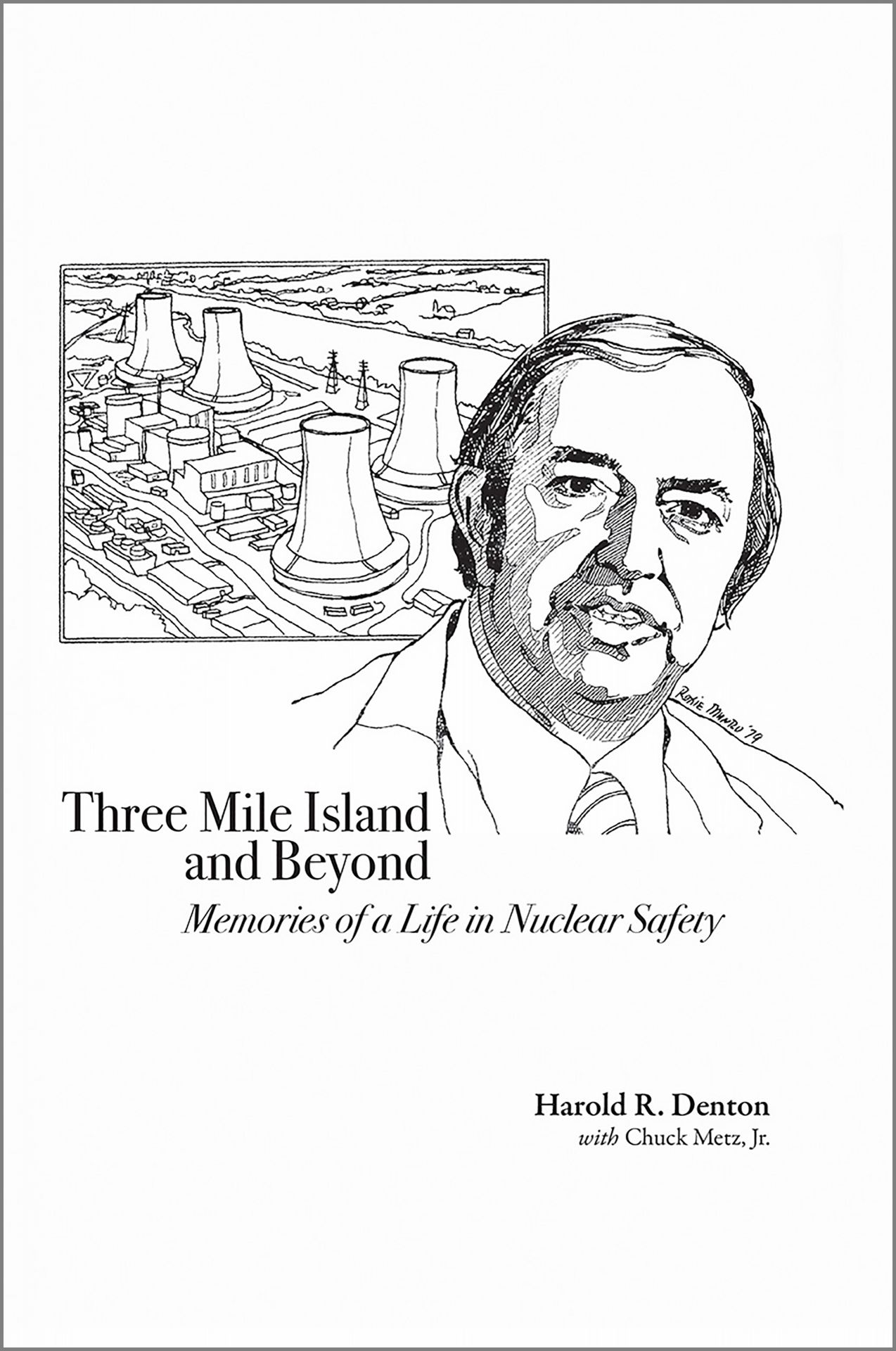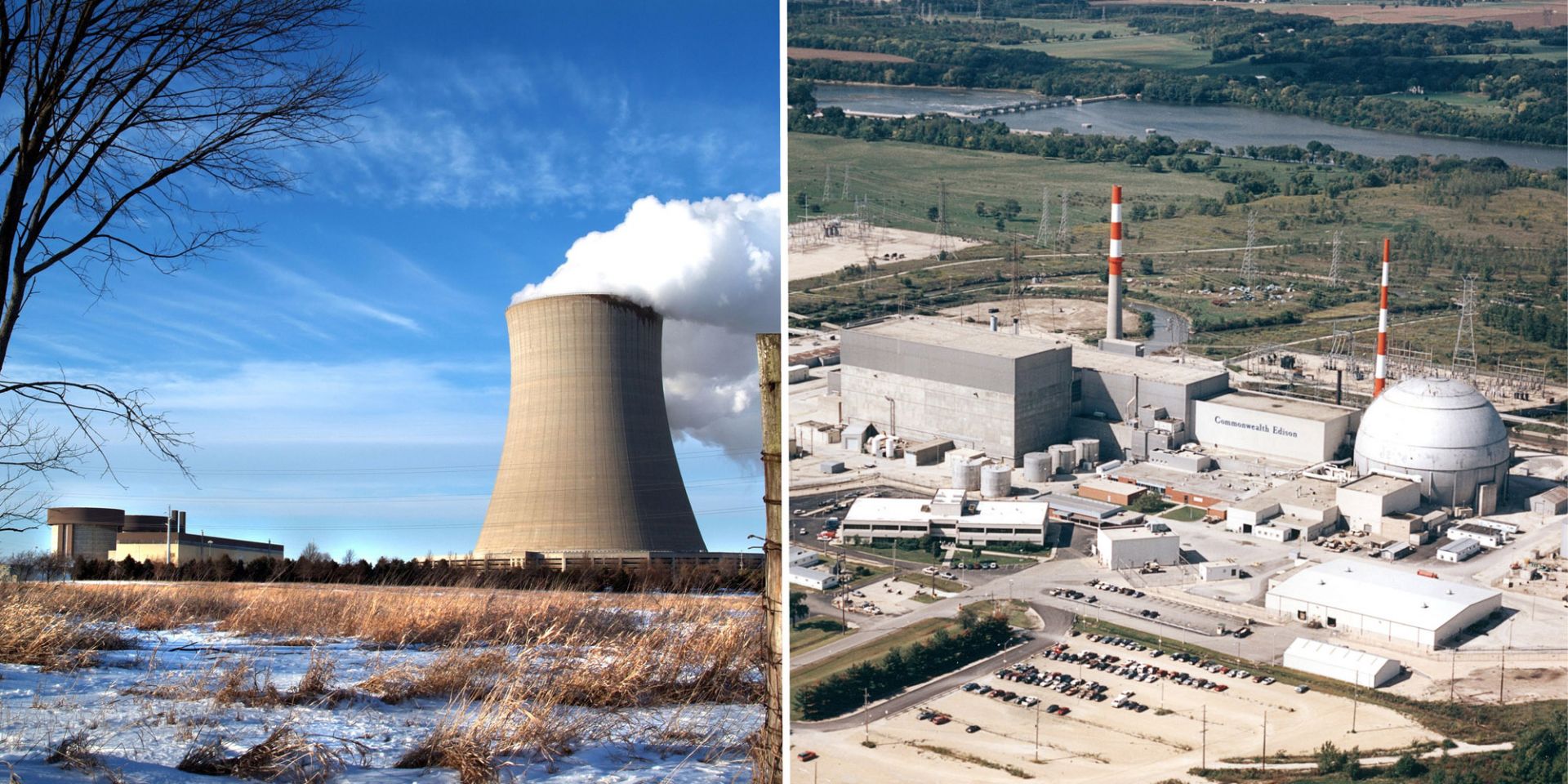The U.S. Department of Energy’s Kathryn Huff (at left) and the U.S. Embassy in Romania’s Chargé d’Affaires David Muniz (at right), met with Virgil Popescu, Romania’s minister of energy, on July 29.
A delegation from the Department of Energy arrived in Romania in late July to discuss bilateral energy cooperation and Romania’s expansion plans for its sole nuclear power plant, Cernavoda. The delegation was led by Kathryn Huff, acting assistant secretary and principal deputy assistant secretary for the Office of Nuclear Energy.
Workers in the control room of the newly operational Honghanye-5 reactor. (Photo: Liaoning Hongyanhe Nuclear Power Company)
China continues its relentless march toward the top of the list of nations with the most power reactors. On July 31, China General Nuclear Power Group (CGN) announced that Unit 5 at the Hongyanhe plant in Liaoning Province has begun commercial operation, giving China 51 commercial-scale power reactors, only five fewer than France, which currently sits at the number-two spot on the list with 56 operating reactors.
Vogtle Units 3 and 4, earlier this month. (Photo: Georgia Power)
Georgia Power yesterday announced that due to 'productivity challenges' and the need for 'additional time for testing and quality assurance,' it has revised the schedule for the Vogtle-3 and -4 nuclear expansion project. The new schedule pushes back the Unit 3 in-service date to the second quarter of 2022 and the Unit 4 date to the first quarter of 2023—a three-to-four-month shift for each unit.
Duke Energy’s Oconee plant, in Seneca, S.C. (Photo: Duke Energy)
The Nuclear Regulatory Commission has accepted for review the subsequent license renewal application for Duke Energy’s Oconee nuclear plant, the agency announced yesterday. The utility submitted the application for an additional 20 years of operational life for Oconee on June 7. A public version of the application (with proprietary details removed) is available on the NRC website.
The Davis-Besse nuclear power plant. (Photo: Nuclear Regulatory Commission)
The Nuclear Regulatory Commission on Tuesday announced that it has begun a special inspection at Energy Harbor’s Davis-Besse nuclear plant. The inspection will focus on two separate issues: multiple diesel generator failures during testing and maintenance, and a complicated reactor trip on July 8.
The Byron and Dresden nuclear power plants.
In what could be viewed as a rather pointed message to Illinois lawmakers that time is running out to pass legislation providing a lifeline to the state’s Byron and Dresden nuclear plants, Exelon Generation this morning announced that it would file post-shutdown decommissioning activities reports (PSDARs) today with the Nuclear Regulatory Commission. The PSDARs detail long-term site restoration plans for the facilities, both of which are scheduled to shut down for good this fall—first Byron, in September, then Dresden, in November.
A crane removes the first of the Unit 6 steam generators on July 23. (Photo: Bruce Power)
Bruce Power has removed the first of eight steam generators from Unit 6 at the Bruce nuclear plant in Ontario, the company announced earlier this week. The work was done as part of the facility’s major component replacement (MCR) project.
The nuclear power plant of Dampierre-en-Burly, France. (Photo: Kresimir Bobovec)
France has overtaken Norway to regain its position as the biggest net exporter of power in Europe, according to a new report on the European electricity market by U.K.-based energy data services provider EnAppSys.
The report, which looked at the value of imports and exports in Europe during the first six months of 2021, found that France’s net exports totaled 21 TWh, with most of the power flowing to Great Britain (8.6 TWh) and Italy (7.2 TWh).
Chuck Metz Jr. discusses his collaboration with Harold Denton, whose memoir interweaves a retelling of the Three Mile Island accident events with stories of his career-long advocacy for nuclear safety.

Metz
A number of years ago, historian and writer Chuck Metz Jr. was at the Bush’s Visitor Center in Tennessee’s Great Smoky Mountains when he ran into former Nuclear Regulatory Commission official Harold Denton and his wife. Metz was at the visitor center, which opened in 2010 and is now a tourist hotspot, because, as he explained to the Dentons at the time, he had overseen the development of its on-site museum and had written a companion coffee-table history book.

The chance meeting turned into a friendship and a fruitful collaboration. Denton, who in 1979 was the public spokesperson for the NRC as the Three Mile Island-2 accident unfolded, had been working on his memoir, but he was stuck. He asked Metz for help with the organization and compilation of his notes. “I was about to retire,” Metz said, “but I thought that exploring the nuclear world might be an interesting change of pace.”
Denton passed away in 2017, but by then Metz had spent many hours with his fast friend and was able to complete the memoir, Three Mile Island and Beyond: Memories of a Life in Nuclear Safety, which was published recently by ANS. Metz shared some of his thoughts about Denton and the book with Nuclear News. The interview was conducted by NN’s David Strutz.








 The U.K. government last week issued a “
The U.K. government last week issued a “









 Carbon dioxide emissions from the U.S. power sector fell 10 percent between 2019 and 2020, according to the 17th and latest edition of
Carbon dioxide emissions from the U.S. power sector fell 10 percent between 2019 and 2020, according to the 17th and latest edition of 
